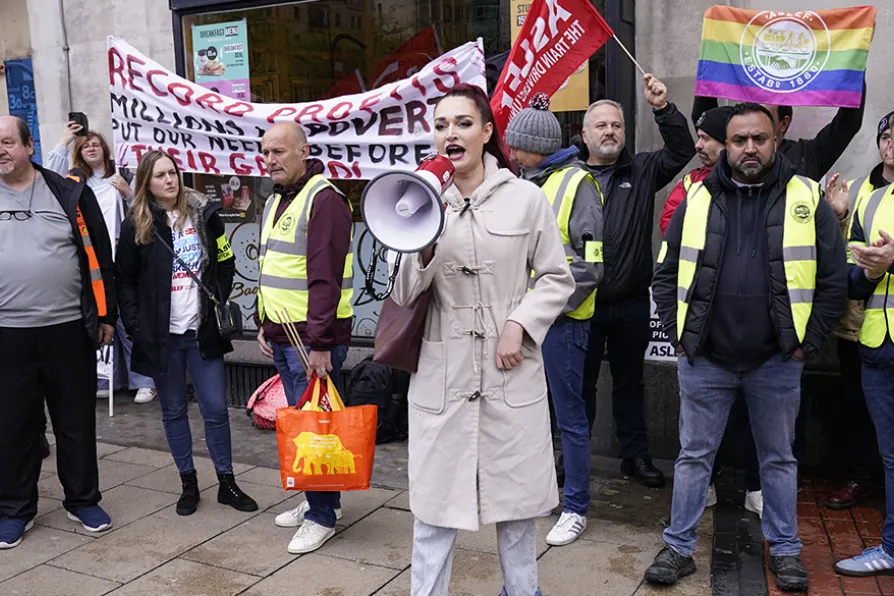RAMZY BAROUD offers six reasons why Netanyahu is prolonging conflict in the Middle East

 SUPPORTING EACH OTHER: (Above) Laura Dickinson, Enough is Enough regional co-ordinator for Yorkshire, joins the RMT, TSSA, Aslef and Unite picket line in Leeds
SUPPORTING EACH OTHER: (Above) Laura Dickinson, Enough is Enough regional co-ordinator for Yorkshire, joins the RMT, TSSA, Aslef and Unite picket line in Leeds
IF A trade union had a problem with its computer system, the chance is that it would contract a qualified professional to help put it right.
Ditto if the lights went out in union head office and you had paid the exorbitant energy bills, you would probably call an electrician.
However, when it comes to fixing the gulf that has developed between workplace organising and community organising, between trade unions and community organisations, unions haven’t necessarily taken advantage of professional advice or learned from the rich tradition of community-building that we have throughout the country.

Artists should not be consigned to a life of precarious working – they deserve dignity and proper workers’ rights, argues ZITA HOLBOURNE

Women are a vital part of the labour movement and have much to contribute, but there’s far more to be done to make sure that our sisters’ voices are truly heard, says PHILIPA HARVEY

This ‘Big Meet’ our focus is building the next ‘Megapicket,’ say HENRY FOWLER and GAWAIN LITTLE of the General Federation of Trade Unions

Head of education, campaigns and organising for the General Federation of Trade Unions HENRY FOWLER explains why it is launching a fund to support trades councils and give them access to a new range of courses and resources











